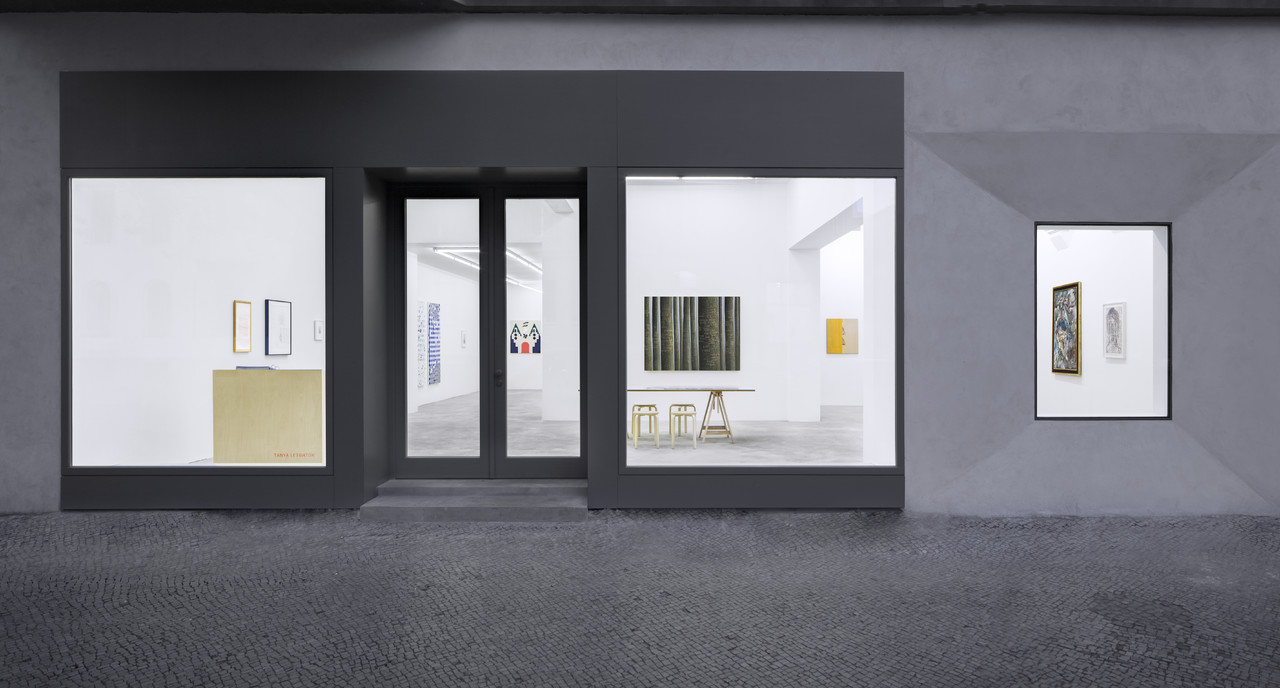Tanya Leighton is pleased to present ‘Nel Mezzo’, Sharon Hayes’ third solo exhibition at the gallery and the first presentation in Germany of her on-going video series ‘Ricerche’.
Sharon Hayes investigates the act of public speech and its intersections with history, politics, activism, queer theory, love and sexuality. In performances, videos, and installations, the artist examines these notions with regard to both the collective and the individual voice. ‘Ricerche’ is a project composed of multiple video works that uses Pier Paolo Pasolini’s film ‘Comizi d’amore’ (Love Meetings) as a guidepost for an examination of gender, sexuality and contemporary collective identifications.
In 1963, Pasolini travelled through Italy with a small camera crew on a cinematic inquiry. Interviewing groups of people (neighbours, co-workers, families, students, army buddies and members of a football team) on their views on sex, sexuality and what Pasolini named “inversion” or “perversion”. Pasolini divides this cinematic report into ‘Ricerches’ (Researches). As he moves from beach resorts, to town centres, to fields, universities and factories throughout the country, the work gathers various frictions: between the north and the south, progress and maintenance, young and old, children and parents, urban and rural, etc.
In her work ‘Ricerche’, Sharon Hayes adapts the structure of ‘Comizi d’amore’, following Pasolini’s foundational conceit to interview people outside and in groups. Borrowing from Pasolini’s questions and shot composition, Hayes’ works isolate certain of Pasolini’s scenes and stretch them in volume and duration. ‘Ricerche’ unfolds a contemporary field of non-hetero-normative family structures and non-binary gender identifications, and attempts to account for the complex contemporary conditions that inform collective understandings of gender, sex and sexuality as well as national, religious and ethnic identities.
Ricerche: three, 2013
Single Channel HD Video (Colour, Sound) 38 minutes
Commissioned for the 55th Biennale di Venezia in 2013, this work is an interview with 35 students at Mount Holyoke College in Massachusetts.
An all-women’s college, Mount Holyoke faced decades of declining enrolment from US born women and made a commitment, in the 1960s to heavily recruit international women. In the last decade, Mount Holyoke, as with many of these gender-segregated institutions, faced the increasing necessity to accommodate students who decide (after enrolment) to change their gender from female to male. On this level, and indeed less explicit ones, the population attending Mount Holyoke exists on a much wider gender spectrum than the description “all women’s college“ can hold clear.
In ‘Ricerche: three’ the 35 interviewees gather in one location, discussing gender normativity, religion, marriage, sex and queerness. In the last 12 minutes of the piece, the group erupts into a heated debate about transnational feminisms and the legacies of US imperialisms.
Ricerche: one, 2019
Two Channel HD Video (Colour, Sound) 28 minutes
This video diptych is Hayes’ most recent addition to the series. Structurally, it begins the same way ‘Comizi d’amore’ does, as Hayes gathers groups of children to ask the question: “Where do babies come from?”
Shot over one week in Provincetown, Massachusetts, all of the participants in Hayes’ video are the children of queer or gender nonconforming parents. The work is composed of interviews with two age groups: 5-8 year olds and young adults. Similar to those in Pasolini’s interviews, the young children on screen produce delightfully fragmented answers that mix imagination, fantasy, and words they repeat from things adults have said to them.
The young adults on the opposite screen, are deeply experienced with the narrative of their families and their births, most of them having had to account for their families repeatedly over the two and three decades of their lives. These interviews share detailed perspectives on their complex family histories and their position and role in the quickly evolving political and juridical landscape for queer people, and by extension queer child rearing, in the United States.
Come out!, 2019
Acrylic paint and newspaper on textile
110 x 154,5 cm
43.3 x 60.83 “
Hayes’ most recent work in the exhibition is ‘Come out!’. Facing the wall, this protest banner is hung back to front to inverse its slogan, which bleeds through the fabric. Scraps of a layer of newspaper – presumably used as a drop cloth – are stuck to the paint on what is now the front of the banner. Collected during the week of 15 June 2019, snippets of still recent news items can be made out, creating a fragmented snapshot of our current cultural moment.
'Come Out!' was a magazine published by The Gay Liberation Front. GLF, a multi-issue radical political liberation movement, existed from 1969-1973, coalescing in the aftermath of the Stonewall Uprising. The GLF often used the magazine as a recruitment tool, and something like a megaphone and a protest banner.
Sharon Hayes is one of the most influential politically and socially committed artists working in the United States. She has been the subject of retrospectives at the Whitney Museum of American Art, New York; Museo Nacional Centro de Arte Reina Sofía, Madrid; and currently at Moderna Museet, Stockholm (on view until 11 August 2019). Hayes’ work is part of the public collections of Tate, London; Museum of Modern Art, New York; Solomon R. Guggenheim Museum, New York; Whitney Museum of American Art, New York; Dallas Museum of Art; San Francisco Museum of Modern Art; Kunstmuseum St. Gallen; Museum of Modern Art Warsaw, Warsaw; among many others.
Sharon Hayes lives and works in Philadelphia, where she holds the position of Associate Professor of Fine Arts at the University of Pennsylvania.
